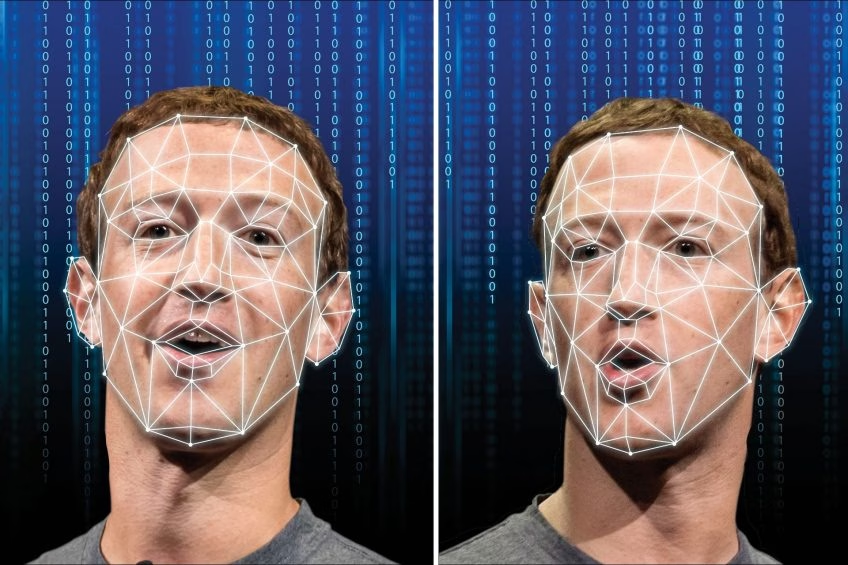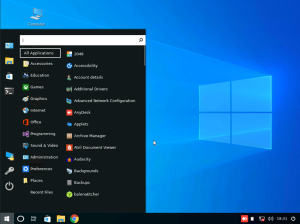Deepfake protection has emerged as a critical necessity in today’s digital world, where deepfake attacks threaten the integrity of our cybersecurity frameworks. As these advanced AI-driven technologies become more sophisticated, traditional defenses are struggling to keep pace, particularly in the realm of phishing protection. Recent findings indicate that Standard Email Security solutions fail to block a staggering 67.5 phishing attempts for every 100 mailboxes each month, underscoring the urgent need for innovative cybersecurity solutions. In response to this pressing issue, IRONSCALES is set to unveil an enhanced email security product at the upcoming 2025 RSA Conference, showcasing their cutting-edge deepfake protection designed to combat these modern threats. This proactive approach promises to bolster defenses against the deceptive tactics employed in today’s social engineering attacks, providing organizations with the tools they need to safeguard sensitive information.
As the threat landscape evolves, the emergence of synthetic media technologies has profoundly impacted organizational security protocols. The increasing sophistication of digitally altered content, often referred to as manipulated media or phony content, poses significant risks to information integrity and trust. Organizations now find themselves navigating the challenges presented by enhanced phishing tactics built upon these technologies, demanding a new age of defensive measures. Protecting against these vulnerabilities requires advanced tools that leverage machine learning and AI capabilities to identify and mitigate potential threats before they escalate. As we engage with this transformative era, the necessity for robust deepfake mitigation strategies has never been more apparent, highlighting the importance of adopting comprehensive email security frameworks that can adapt to contemporary risks.
Understanding Deepfake Technology and Its Implications
Deepfake technology, which uses AI-driven algorithms to create highly realistic fake videos, audio, and images, has emerged as a powerful tool for manipulation. While the technology itself can be used for entertainment and artistic purposes, malicious actors exploit it to deceive individuals and organizations. This growing trend poses significant risks, particularly in the realm of cybersecurity, where deepfake-driven social engineering attacks have become commonplace. Understanding the anatomy of these attacks is crucial for developing effective cybersecurity solutions to combat them.
Deepfake attacks not only compromise individual privacy but also threaten organizational integrity. For instance, cybercriminals can impersonate executives or trusted third parties to coerce employees into divulging sensitive information or initiating unauthorized transactions. As deepfake technology continues to evolve, organizations must stay vigilant and proactively implement measures to protect themselves from these deceptive tactics.
The Rising Threat of Deepfake-Driven Phishing Attacks
In the cybersecurity landscape, phishing attacks have long been a primary method used by cybercriminals. With the advent of deepfake technology, these phishing tactics are becoming increasingly sophisticated. Phishing attacks utilizing deepfake techniques employ realistic audio or video of trusted figures, making it easier for attackers to manipulate victims. According to recent statistics, the rate of these deepfake phishing attempts is on the rise, prompting urgent discussions about the future of email security and the methods needed to counter these threats.
To combat deepfake-driven phishing attacks effectively, businesses must deploy advanced AI-driven technology capable of identifying and mitigating such sophisticated threats. This includes integrating tools that provide deepfake protection, which can detect anomalies in communication that may point to manipulation. By employing these cybersecurity solutions, organizations can enhance their overall email security strategy and reduce the likelihood of falling victim to these advanced forms of attack.
Innovative Solutions for Deepfake Protection
As deepfake technology becomes more prevalent, the introduction of innovative solutions like those from IRONSCALES is essential for maintaining robust cybersecurity. Their new product offers deepfake protection specifically designed for enterprise email security, leveraging cutting-edge AI-driven algorithms to analyze content for potential manipulation. This proactive approach not only enhances the organization’s defense against deepfake attacks but also empowers employees to recognize and report suspicious communications.
By integrating these advanced cybersecurity solutions, businesses can protect sensitive data and maintain trust with their clients and stakeholders. As organizations continue to face evolving threats, investing in technologies like deepfake protection can significantly reduce the risk of falling victim to social engineering tactics that exploit the growing capabilities of AI.
Evolving Email Security Standards in the Age of Deepfakes
To cope with the growing threat of deepfake attacks, it’s crucial for organizations to reassess their email security standards. Traditional Secure Email Gateways (SEGs) have demonstrated limitations in halting sophisticated phishing attempts, often failing to cover the entirety of threats presented by deepfakes. The rise of what is termed Phishing 3.0 demands an upgrade in email security protocols to incorporate elements that can detect and disable deepfake-driven messages effectively.
By utilizing AI-driven technologies, organizations can implement a new standard for email security that integrates multifaceted protection against emerging threats. Organizations that prioritize deepfake protection in their cybersecurity strategies will not only enhance their defenses but will also build resilience against the multitude of social engineering techniques deployed by cybercriminals.
The Role of AI in Deepfake Detection
Artificial Intelligence plays a pivotal role in mitigating the risks posed by deepfakes and enhancing cybersecurity solutions. By harnessing AI-driven technology, organizations can develop systems that continuously learn from new threats and improve their detection capabilities. Advanced machine learning algorithms can analyze vast volumes of email traffic to identify patterns and anomalies indicative of deepfake content.
The significance of AI in deepfake detection cannot be overstated. Automated systems can flag suspicious communications for review, significantly enhancing the speed and accuracy with which organizations can respond to potential breaches. This position of AI as a frontline defense tool underscores the need for continuous innovation and adaptation within the cybersecurity landscape.
Challenges in Implementing Deepfake Protection Strategies
While the development of deepfake protection technologies is promising, organizations face several challenges in implementing these strategies. A key hurdle is ensuring that such solutions are integrated seamlessly into existing cybersecurity frameworks. The complexity of modern IT environments requires deepfake protection tools to be adaptable while maintaining high efficacy in detecting and preventing threats.
Moreover, organizations must also contend with the potential for false positives, which can disrupt regular operations and lead to undue scrutiny of benign communications. Training employees to navigate these tools effectively is essential to maximize their potential and minimize interruptions in workflow.
Educating Employees about Deepfake Risks
Employee education is a critical component of any effective cybersecurity strategy, especially when it comes to combating deepfake attacks. Organizations must invest in training programs that specifically address the risks posed by deepfake technology. By cultivating awareness among employees about the tactics used in deepfake-driven social engineering, businesses can create a more vigilant workforce capable of spotting potential threats.
Interactive training sessions, real-time simulations, and workshops on recognizing signs of deepfakes can empower employees to act responsibly when engaged in sensitive communications. This proactive educational approach complements the technical defenses that organizations put in place, ensuring a well-rounded strategy to combat the rise of phishing and deepfake threats.
Regulatory Compliance and Deepfake Protections
As organizations enhance their cybersecurity measures to include deepfake protection, ensuring compliance with regulatory frameworks becomes paramount. Regulations governing data protection and privacy, such as GDPR, require organizations to implement adequate safeguards against potential breaches. The integration of deepfake protection technologies can help organizations adhere to these regulations while enhancing their overall cybersecurity posture.
Failure to comply with regulations not only leads to significant financial penalties but can also damage an organization’s reputation. By proactively investing in cybersecurity solutions that address deepfake threats, organizations can fulfill their regulatory obligations while simultaneously safeguarding their assets and sensitive information.
Future Trends in Deepfake Technology and Cybersecurity
Looking ahead, the evolution of deepfake technology will inevitably continue to shape the cybersecurity landscape. As threat actors develop increasingly sophisticated methods for manipulation, cybersecurity solutions must likewise advance to counter these developments. Anticipating future trends in deepfake tactics allows organizations to stay one step ahead, continuously refining their defenses against emerging threats.
Moreover, collaboration across industries will be crucial in developing comprehensive strategies to combat deepfake misuse. By sharing insights, best practices, and threat intelligence, organizations can strengthen their collective response to deepfake-driven social engineering attacks, ensuring a safer environment for all.
Frequently Asked Questions
What is deepfake protection and why is it important in cybersecurity?
Deepfake protection refers to the use of innovative technologies designed to detect and prevent deepfake-driven social engineering attacks. As these attacks become more sophisticated, especially in phishing scenarios, implementing deepfake protection is crucial for organizations to safeguard sensitive information and maintain email security against advanced threats.
How can AI-driven technology enhance deepfake protection?
AI-driven technology significantly enhances deepfake protection by employing advanced algorithms to analyze video and audio content for anomalies. This proactive approach allows organizations to identify potential deepfake content before it can be exploited in phishing attacks, ultimately strengthening their overall cybersecurity solutions.
What are some common types of deepfake attacks in email phishing?
Common deepfake attacks in email phishing include the use of altered audio or video messages that impersonate trusted individuals to trick victims into transferring funds or revealing sensitive information. Without deepfake protection, these sophisticated tactics pose a significant threat to enterprise email security.
What is the role of cybersecurity solutions in mitigating deepfake threats?
Cybersecurity solutions play a vital role in mitigating deepfake threats by integrating advanced detection mechanisms, such as deepfake protection tools, into their systems. These solutions help organizations identify and neutralize deepfake-driven phishing attacks before they cause harm, thereby enhancing overall resilience against such threats.
Why is traditional email security insufficient against deepfake-driven phishing attacks?
Traditional email security measures, such as Secure Email Gateways (SEGs), often lack the capability to identify complex patterns associated with deepfake attacks. As a result, they fail to stop a high volume of phishing attempts, highlighting the need for dedicated deepfake protection technologies to address these emerging threats effectively.
What can organizations do to prepare for the rise of deepfake cyber threats?
Organizations can prepare for the rise of deepfake cyber threats by investing in advanced deepfake protection solutions, implementing comprehensive cybersecurity training for employees, and staying updated on AI-driven technology trends that enhance their defenses against evolving phishing tactics.
How does IRONSCALES’ new product address deepfake protection?
IRONSCALES’ new product addresses deepfake protection by utilizing advanced AI algorithms that analyze content in real-time, effectively identifying and flagging potential deepfake audio and video before reaching users. This innovative solution enhances enterprise email security and strengthens defenses against deepfake-driven attacks.
What future trends should we expect in deepfake protection technologies?
Future trends in deepfake protection technologies are likely to include improvements in AI-driven analysis capabilities, more sophisticated detection methods, and integration with broader cybersecurity solutions. These advancements will enable organizations to better combat the growing threat of deepfake-driven social engineering attacks.
| Key Point | Details |
|---|---|
| Deepfake Problem | Deepfake-driven social engineering attacks are becoming more prevalent. |
| Phishing Threats | Traditional SEGs fail to stop 67.5 phishing attacks per 100 mailboxes monthly. |
| IRONSCALES New Product | Launch of deepfake protection product for enterprise email security, unveiled at RSA Conference 2025. |
| Eyal Benishti’s Statement | Deepfake technologies are changing the phishing landscape, necessitating advanced security tools. |
| Deepfake Exploits | Used for financial scams, revealing sensitive information, and unauthorized access. |
| AI Algorithms | The new product employs advanced AI to detect anomalies in audio and video deepfakes. |
Summary
Deepfake protection is becoming increasingly essential in today’s cybersecurity landscape. As deepfake technology evolves, it enables sophisticated social engineering attacks aimed at deceiving individuals into compromising situations. Organizations must adopt advanced solutions like the new product from IRONSCALES, which leverages AI to detect and prevent such threats effectively. By implementing deepfake protection measures, businesses can enhance their defensive strategies against an unprecedented scale of phishing attacks, ensuring that their employees and sensitive information remain secure.




